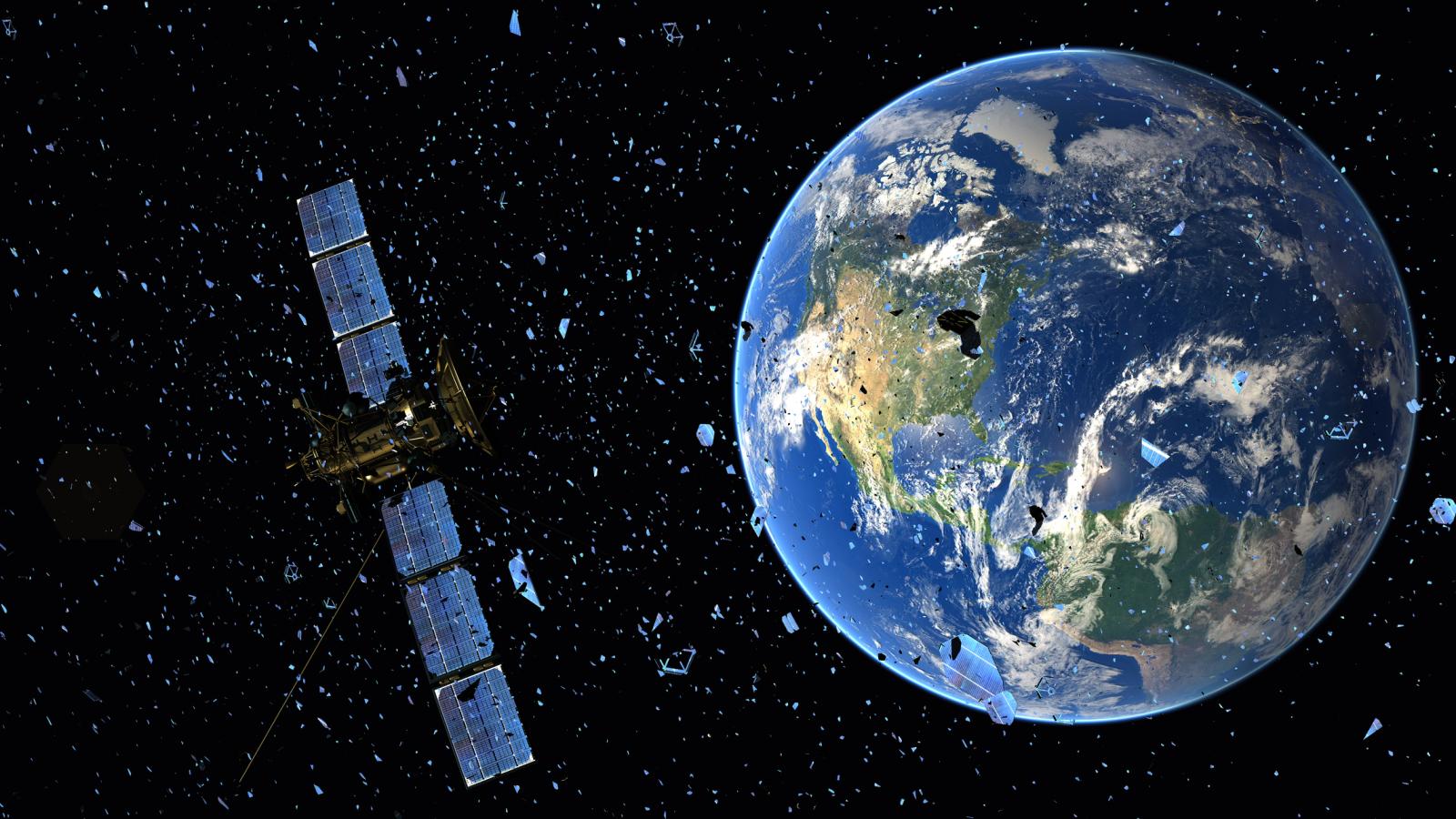
Sustainable Space – Resilient Earth
Perspectives and Contributions from Japan and Germany
Space system services such as telecommunications, navigation and Earth observation are indispensable for the functioning of modern societies. They provide voice and data communications, maritime and aeronautics navigation, weather forecast, disaster relief or intelligence gathering, to name a few examples. But as more countries and private actors are venturing into space, the security and sustainability of space has increasingly become threatened – and thereby impacting resilience on earth.
Space systems in orbit have always been confronted with a number of dangers, including meteoroids and solar storms. The current expansion of commercial activities and opportunities in space combined with the growing potential for conflicts in orbit between the actors involved has further raised another major, man-made risk: space debris. The amount of defunct equipment left in the orbit is on the rise – and thus the risk for minor but also major collisions increases. Collisions cause further debris, and even small pieces pose a serious threat because of the high velocities involved. An exponential rise of debris fragments in space could one day even make it impossible to safely utilize satellites and thus have a major impact on earth.
Unhindered access to space by promoting the safe and sustainable use of space is of utmost importance for Germany and Japan. Both countries are at the forefront of developing technologies to mitigate the space debris problem and are looking back on decades of close cooperation in the space domain.
This symposium will bring together Japanese and German perspectives to reflect on strategies and regulations, stakeholders and claims, innovative technologies, and also the Japanese and German contributions to improve sustainability in space.
The event is organized as an on-site event at DWIH Tokyo (OAG Hall, 7-5-56 Akasaka, Minato-ku, Tokyo 107-0052) but will also be streamed online. It will also be followed by a reception on-site at DWIH Tokyo.
Conference language will be English with simultaneous interpretation into Japanese, for further details please refer to the tentative program on our website below.
For your participation, please register HERE.
01.06.2023 15:00 - 18:00
Tokyo & streamed online
15:00 – 18:00 JST / 08:00 – 11:00 CEST On-site at DWIH Tokyo (OAG Hall) AND streamed online, both with simultaneous interpretation into Japanese
Programm / プログラム / Program
PROGRAMM
(as of May 31th, 2023)
14:30 – 15:00 Registration at OAG Hall
15:00 – 15:15 Welcome 08:00 – 08:15 CEST
Axel Karpenstein (Director; German Center for Research and Innovation (DWIH Tokyo))
Ambassador Takeshi Yagi (President; Japanese-German Center Berlin (JDZB))
Dr. Anna Wallbrecht (Deputy Head of Economic and Scientific Department; Embassy of the Federal Republic of Germany Tokyo)
15:15 – 15:45 Keynote Presentations: Strategies and Regulations 08:15 – 08:45 CEST
Chair: Dr. Phoebe Stella Holdgrün (Head of Conferences / Project Management; Japanese-German Center Berlin (JDZB))
Prof. Dr. Setsuko Aoki (Vice-President & Director; International Institute of Space Law (IISL) & Professor of Law, Keio University Law School)
Matthias Wachter (Managing Director; NewSpace Initiative, Federation of German Industries (BDI), Berlin)
15:45 – 16:15 Discussion 08:45 – 09:15 CEST
16:15 – 16:30 Coffee Break 09:15 – 09:30 CEST
16:30 – 18:00 Panel Discussion: 09:30 – 11:00 CEST
Chair: Axel Karpenstein (Director; German Center for Research and Innovation (DWIH Tokyo))
Wolfgang Riede (Head of Department Active Optical Systems; Institute of Technical Physics, German Aerospace Center (DLR), Stuttgart)
Toshifumi Yanagisawa (Research and Development Directorate, Associate Senior Researcher; Japan Aerospace Exploration Agency (JAXA), Tokyo)
Kristina Nikolaus (CEO & Co-Founder; OKAPI:orbits GmbH, Braunschweig)
Chris Blackerby (Group Chief Operating Officer; Astroscale, Tokyo)
Stijn Lemmens (Senior Space Debris Analyst; Team; European Space Agency (ESA), European Space Operations Centre, Darmstadt)
18:00 End of the Symposium 11:00 CEST
18:00 – 19:00 Reception at OAG Hall (Foyer)
Information
In cooperation with the German Centre for Research and Innovation (DWIH Tokyo) and German Aerospace Center (DLR)